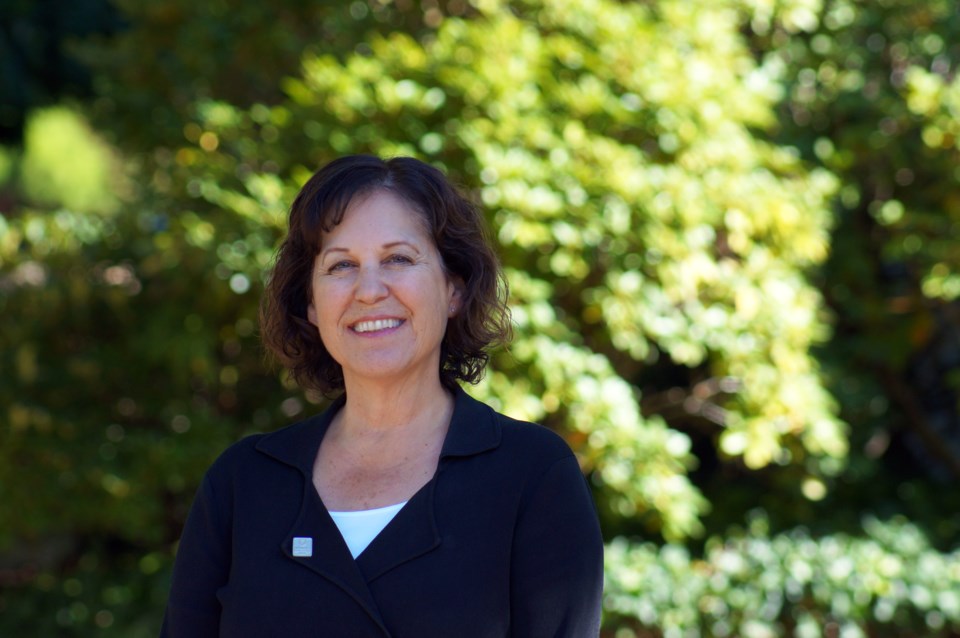‘Homelessness is a community issue.”
So said a friend at Chimo, and I agree. Each one of us is responsible for helping address it because it impacts us all, one way or another.
Research shows that providing the homeless with housing, supports, employment and/or other services will end homelessness the majority of the time.
Wow, eh? Such a simple solution — give the homeless a place to live and you end homelessness.
And, it’s a fact that supportive housing costs less than leaving homeless people on the streets and living in shelters where they’re more likely to visit an emergency room and/or end up in jail.
So, what are we waiting for?
I was in a workshop recently with Judy Graves, a well-known advocate for the homeless in Vancouver. One of the participants in the workshop said that the homeless have become so prevalent, he doesn’t even see them anymore. He asked how we could make people, like himself, less desensitized to all this human suffering. Others suggested it starts by telling the stories of people on the street — people like Mike Novacluse, for instance.
Mike has lived and worked in Richmond his entire life. He’s now homeless and gets around in a wheelchair. In fact, you may have heard about him as he was recently in the Richmond News where he told his story to reporter, Graeme Wood. Mike is a hero in my eyes — It takes courage to tell others that you’re homeless and hungry?
We’ve been trying to find housing for Mike for over a year. He’s been living on the streets for a few years, but only came to us last year. He visits our office often, asking if we’ve found a place for him yet. And each time he comes by we have to watch him wheel back out the door to spend another night in a stairwell or under a tree because we can’t find him a place to live.
Until last week, Mike lived in a stairwell behind a building. He would leave his wheelchair, crawl up three stairs, and cozy up to a dumpster to stay warm. But a few days ago, the police told him to move. He’s now looking for a new place where he can feel safe and stay dry.
I asked Mike what would be the one thing he would want more than anything, once we get him housed. “A TV,” he answered. Something most of us take for granted would be a dream come true for Mike. I’m sure he’d like to eat three times a day, as well — he’s not able to do that right now. Mike is also looking forward to getting an electric wheelchair. He qualifies for one and really needs it, but he doesn’t have a place to lock it up at night or plug it in.
Mike said it was okay for me to share his story with you because he hopes it will help you understand that people who don’t have a home are no different than anyone else.
I think sometimes we’re too quick to judge or blame people who are homeless for their situations. There are those who believe that people choose to be homeless, or are too lazy to get a job. I’ve even heard someone say that Mike looks like an addict because he’s so thin. Actually, he’s so thin because he only eats once a day, and not every day.
Some complain about homeless people sleeping in the park during the day, but, as a homeless person told me, it’s hard to sleep at night when you fear for your safety.
Can you imagine being homeless? The constant hunger, being sick and no one paying you any heed, not being able to sleep at night because of concerns for personal safety, being cold and wet, having no place to shower or use a toilet, being constantly told you’re not welcome to sleep here.
Homelessness is a community issue. It’s on all of us to understand it and take action. This could include advocating for more housing, working to help feed the homeless, volunteering at a non-profit, putting a blanket on a homeless person sleeping in a doorway, or even sharing a story with someone else so they, too, can begin to understand and empathize with people who have no home. Big or small, all our efforts are important and together we can end homelessness in Richmond.
So, I ask you, what are you doing to end homelessness?
Diane Sugars works at Chimo Community Services in Richmond



